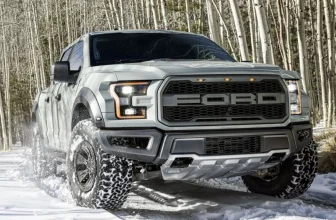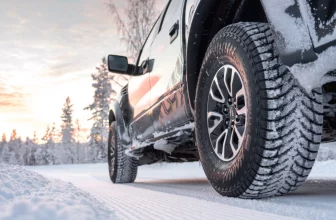Is tire selection for light trucks simple? Are there specific qualities that drivers need to evaluate before purchasing these tires? What features control the performance of LT Highway All-season tires?
The tire selection process is never straightforward. At any point, the driver has to weigh options and make informed decisions. Our roads have light trucks plying them by the minute. These vehicles haul or carry heavy loads from one point to the other. When choosing the best all-season highway tires for light trucks, consumers need to look beyond all-weather traction.
By carrying heavy loads, tires on light trucks become prone to rapid wear and tear. The heavy loads threaten to obliterate the sidewalls of the tires. At the same time, drivers need to experience comfortable rides since they travel long distances each day.
We understand the struggle that accompanies the tire selection and purchasing journey. Manufacturers bombard consumers with a lot of complex information, some of which are incomprehensive. We aspire to improve your tire shopping experiences. Under this article, we discuss the technical specifications of the best all-season highway tires for light trucks.
We analyze the performances of the tires under different driving conditions and answer some of those questions around LT highway all-season tires. Our focus is on you choosing the appropriate set of tires to offer long-lasting performance at affordable rates. Let’s roll.
[table id=4 responsive=’collapse’ /]
How to identify LT Highway All-Season Tires
Independent tread blocks
The treads of LT highway all-season tires are different from other tire categories. Manufacturers mold the tread materials into unique tread patterns that form independent tread blocks. The large tread blocks are vital for sustaining heavy loads while facilitating superior traction on the roads.
Manufacturers mold all-season rubber compounds to form well-distributed tread blocks. Each block contains a blend of rubber, silica and durability-enhancement additives. The wide tread blocks are vital for the provision of wet, dry and snow traction.
The best all-season highway tires for light trucks have the M+S symbol embedded on their sidewalls. Tires having this symbol have reasonable traction capabilities that guarantee driving safety in winter and summer.
Heavy siping
Once in a while, light trucks need to ply loosely-packed roads or snowy roads. On slushy surfaces, the tires require additional biting edges. Heavy siping around the tire enhances the traction capabilities of tires. Sipes complement tread blocks to grip on the road surface. Sipes increase biting edges of the tire and slice through snow and dust on the road. That way, drivers can ply sandy, snowy and muddy roads with ease.
By maximizing road traction, the handling of the vehicle gets better. The tires are highly responsive to steering and braking controls.
Robust internal construction
How do tire manufacturers ensure that the best all-season highway tires for trucks have better load-bearing capacities while maintaining roundness? Hauling constant amounts of loads over a long distance can deform internal and external components of the tires. For reliable long-term service, the tires have robust internal constructions.
The tires contain strands of high-strength, tensile steel ropes. They expand and contract uniformly at high temperatures. Given the levels of light truck performance, the internal strain on the tire is minimal. To reinforce the steel belts, manufacturers use nylon, polyester or polystyrene plies. They improve the flexibility of the tires while enhancing their shock absorption capabilities when driving over irregular surfaces.
Sufficient comfort levels
High noise levels are synonymous with wide tread blocks. The wide tread blocks on LT highway all-season tires have little effect on the noise levels within the cabin. Although the tread blocks are large, manufacturers optimize their positions around the tire. The shallow and deep grooves between tread blocks absorb surface noises keeping the truck interiors as calm as possible.
Comparing the performance of LT Highway All-season tires to other categories
The best all-season highway tires for trucks perform exceptionally on the tarmac. They offer dependable all-season traction that is requisite for hauling those heavy loads. Like any other tire category, these tires have limitations. While they facilitate seamless transportation in some conditions, they are sluggish in others.
Their design focuses on highway driving. The capabilities of the tires diminish as you move away from the highways and city streets. They offer modest performances over hardpacked roads. How will these tires behave on muddy roads? The tires indeed have an aggressive tread pattern, but that is inferior when driving in deep mud. Expect some spinning that may take a toll on the vehicle’s suspension system.
Off-road experiences are far from enjoyable unless you use an all-terrain set of tires. It gets better when you fit specialized rock crawling or off-road tires. LT highway all-season tires will struggle when taken for an off-road round.
Although the tires exhibit impressive performances in winter, they tend to underperform when conditions are harsh. When snow or ice on the road thickens, traction reduces, making it hard for drivers to handle vehicles. Performance winter tires will offer superior capabilities under such conditions.
Verdict
Truck owners have every reason for them to purchase these tires. It is a tire category that guarantees all-weather traction and possesses reliable load-bearing capacities. They are available in multiple sizes that fit on pickup trucks, light trucks and select SUVs. In general, drivers enjoy a balance of traction, handling and comfort.






